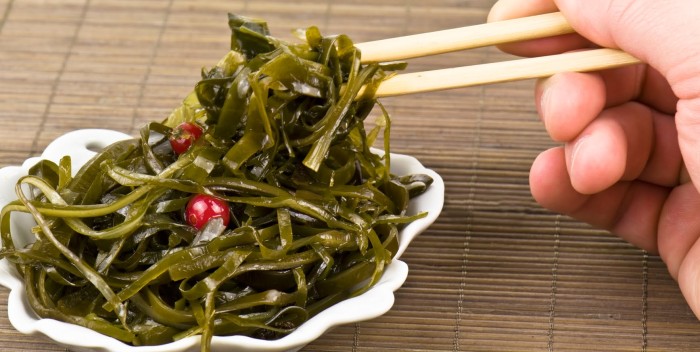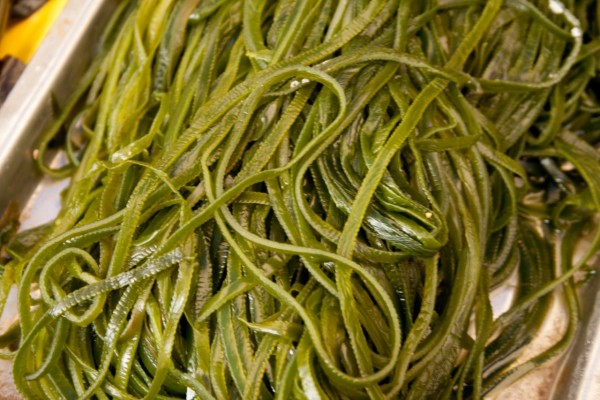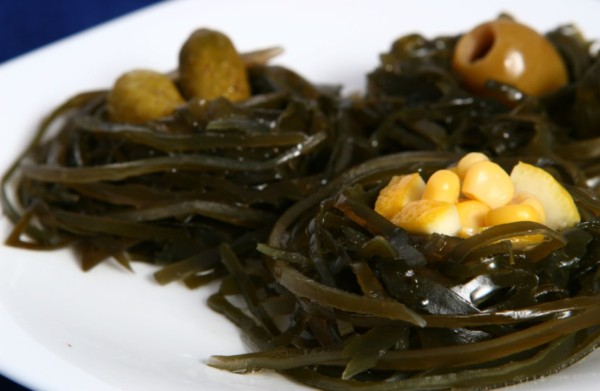Seaweed: benefits and harms
The seaweed looks and smells not appetizing at all. But the benefits that kelp brings to the human body outweigh this disadvantage. When properly prepared, this product can be eaten with pleasure.
The benefits of seaweed
This product has very little energy value, which means it is suitable for diet food... Eating 100 g of kelp, you get only 5.2 kcal. Agree, this is very little. Moreover, this product reduces appetite. To fight off the craving for snacks, it is enough to consume only 300 g of kelp within a week. The fact is that seaweed contains a whole set of trace elements and vitamins, which, when absorbed by the human body, reduce appetite, thus eliminating excess weight... Seaweed is used for cooking, in medicine, and in some cases I even use it to create perfume compositions.
The inhabitants of Ancient China were already aware of the healing properties of kelp. It has been used to treat many diseases by different peoples. In India, it was used to cure diseases of the genitourinary system, in the Pacific Islands, fever was treated with beneficial algae, in Ireland it was used for scrofula, in Corsica, seaweed was expelled from worms, and in Africa it was used to treat goiter. Kelp has almost identical applications now.
Kelp has a very large percentage of iodine content, and this is precisely its main benefit for humans. The activity of the thyroid gland, which is responsible for metabolic processes in the body, depends on the amount of iodine. Iodine is also required by the liver, it cleanses it and participates in the restoration of cells.
This seaweed helps to flush bad cholesterol out of the body. With the systematic and regular use of seaweed, the blood condition significantly improves, the likelihood of a stroke, as well as heart diseases such as heart attack and angina pectoris, decreases. This is confirmed by statistics - the Japanese, who consume seaweed in large quantities, suffer from atherosclerosis much less.
With the help of kelp, you can improve the body's immune defenses, reduce the risk of the onset and development of cancer, and protect the body from influenza. It is especially recommended to often include kelp in the diet for people employed in hazardous industries. Kelp has long been known for its ability to remove radionuclides and heavy metals from the body. Other diseases that benefit from eating kelp include hemorrhoids, gout, and psoriasis.
Kelp is also useful for the genital area. It is a natural aphrodisiac and helps to increase sexual arousal. She will help men to solve problems with potency, and women to establish the menstrual cycle. In addition, kelp is also used for cosmetic purposes. It can significantly improve the condition of hair and skin.
Harm of seaweed
Basically, the harm of this product to human health is associated with the quality of algae. The ecology in our time is such that even seawater can contain harmful substances. They can be absorbed by the cells of the seaweed and thus enter the human body. True, now kelp is mainly grown artificially, which reduces the likelihood of contamination.
Contraindications to the use of seaweed include the following diseases:
- Kidney disease
- Furunculosis.
- Stomach ulcers.
- Tuberculosis.
- Hives.
- Hemorrhagic diathesis.
- Acne.




